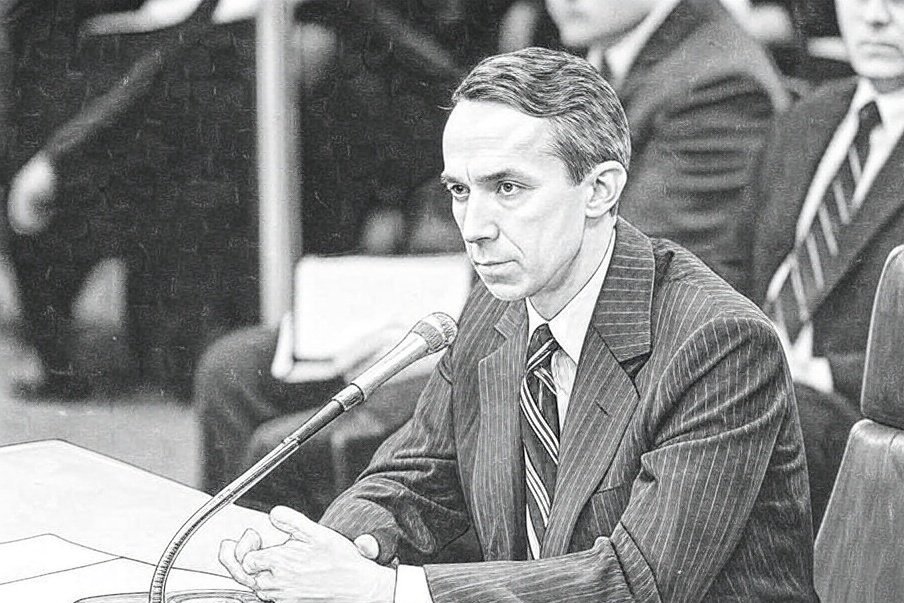Rationally Based is a Supreme Court blog focused on the United States Supreme Court’s decisions, judicial philosophies, and their effects. We analyze landmark cases, legal trends, and the Court’s role in shaping law and society, keeping it clear and concise. Whether you’re a legal professional, law student, or just interested in the highest court, we provide insights into its impact on American jurisprudence. Explore our articles to stay informed on the Court’s decisions and their implications.
Loading articles...
Featured Articles
Latest Articles

Retired Supreme Court Justice, David Souter, Dies at 85
Retired Supreme Court Justice David Souter, appointed by President George H.W. Bush in 1990, died Thursday at his New Hampshire home at 85. Despite his Republican nomination, Souter became a reliable liberal voice during his 19-year tenure, prompting the GOP rallying cry “No more Souters” to avoid justices who might shift left.

What is the Supreme Court’s “Shadow Docket?”
The Supreme Court of the United States, often seen as the pinnacle of judicial transparency with its public hearings and detailed opinions, has a lesser-known side: the shadow docket. This term, which has gained traction in recent years, refers to a collection of decisions and actions the Court takes outside its regular, public merits docket—the process where cases are argued in open court and rulings are issued with comprehensive written opinions. The shadow docket, by contrast, operates with far less visibility, often involving emergency orders, procedural rulings, and other decisions made swiftly, without oral arguments or extensive explanations. Despite its lower profile, the shadow docket can have profound impacts on American law and policy, raising questions about transparency and accountability in the nation’s highest court.

Supreme Court Allows Military Transgender Ban
On Tuesday, the Supreme Court granted the Trump administration’s request to implement a Department of Defense policy banning transgender individuals from serving in the U.S. military, lifting a federal judge’s nationwide injunction. The unsigned order, issued without explanation, permits the policy to take effect as litigation continues in the 9th Circuit and potentially returns to the Supreme Court. Justices Sonia Sotomayor, Elena Kagan, and Ketanji Brown Jackson, the court’s liberal appointees, dissented, indicating they would have denied the government’s request, though they provided no reasoning.

Supreme Court Hears Case on Parental & Religious Rights on LGBTQ+ Content in Schools
On April 22, 2025, the U.S. Supreme Court heard oral arguments in, Mahmoud v. Taylor, a case involving Maryland parents seeking the right to opt their elementary-school-aged children out of instruction incorporating LGBTQ+ themes. The parents, representing diverse religious backgrounds, argued that the Montgomery County Public Schools’ refusal to allow opt-outs violates their First Amendment right to freely exercise their religion. Over nearly two-and-a-half hours, a majority of justices appeared sympathetic to the parents’ position, questioning the school board’s rationale and the potential harm of granting opt-out accommodations.
Meet Ross J. Fodera, Esq.
Ross J. Fodera, Esq. is the founder of the Fodera Law Firm and specializes in small business legal services, including employment disputes, real estate transactions, corporate formation, contract disputes, and risk management. Since becoming an attorney Mr. Fodera has been involved in a number of six-figure settlement negotiations, EEOC proceedings, and real estate litigation. Mr. Fodera takes pride in providing affordable services and effectively communicating with clients so they understand every stage of their representation. Mr. Fodera is barred in the District of Columbia and Massachusetts.





In a significant policy shift, federal prosecutors in the District of Columbia have been directed to stop bringing felony charges against individuals solely for carrying rifles or shotguns. The new directive, confirmed by U.S. Attorney for D.C. Jeanine Pirro, stems from a Justice Department determination that the city's longstanding ban on the public carry of long guns is unconstitutional in light of recent Supreme Court precedent.